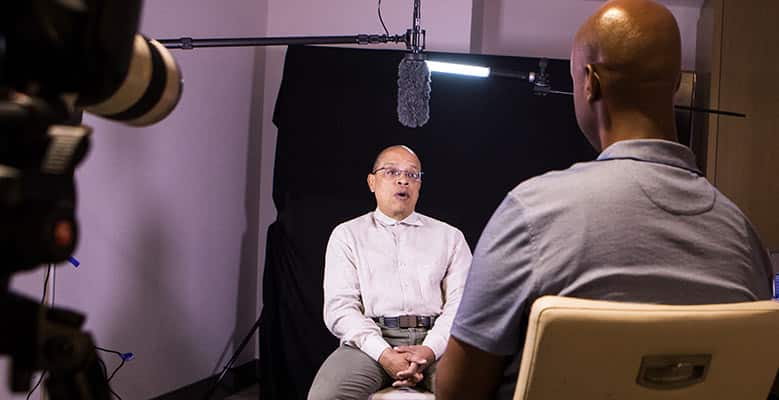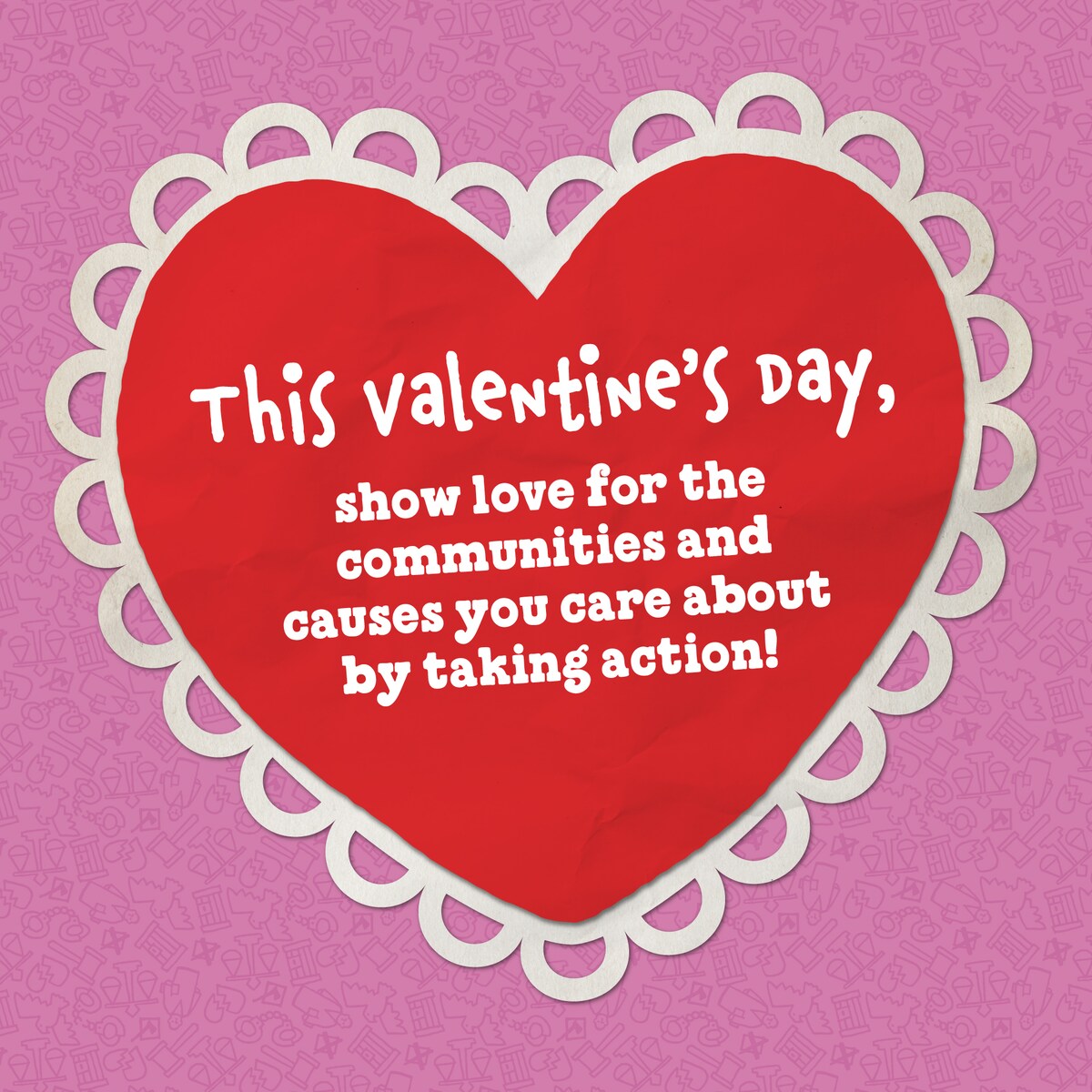
When we last spoke to our friend, Jeffery Robinson, the protests sparked by George Floyd’s murder by the Minneapolis Police had just begun. America was experiencing a reckoning with race and racism not seen for many decades.
Robinson told us that he was determined to seize the moment and fight for change. "You may not beat every challenge you take on, but you will never beat the ones you don't take on,” he said, repeating the wisdom of James Baldwin. With a bonus episode of our collaborative Who We Are podcast dropping on February 19 and a new documentary film coming out, Robinson sat down with us again to discuss the election, the January 6 insurrection, and what he’s working on next.
We last spoke back in June. You called that moment “a horrible time…and a time of incredible opportunity” and you wondered whether the energy of those protests could be maintained to “actually change the course of the country." What are your thoughts about where we are today?
The election was a step in the right direction. But I think that the racialized violence we saw on January 6 at the Capitol was a response to that election. Specifically, part of what the white supremacists were reacting to that day, part of what they were afraid of, quite frankly, was Stacey Abrams, and the other women and men in Georgia who turned that state by bringing out record numbers of Black and Brown voters.
The fear of what happens if Black people all over the South get motivated to vote, that's what drove January 6. January 6 was a warning—as in, “Did you think when you started attacking both the symbols and substance of white supremacy that we would simply stay home and say, ’Oh, it's a pity our privilege is going away’?” No. No. The election was a step in the right direction from June, but we have taken steps forward before and the ball has always rolled back. So the question is, what's the next step?
There’s already movement in many states to pass more anti-voting legislation.
One of the things the federal government has to do is put the teeth back in the Voting Rights Act. There are all kinds of suppression efforts underway at the state level, and I think what you see white supremacists thinking is, well, if Black and Brown people are actually going to mobilize and vote like this, the only way we have a chance is to go back to the old ways. The interesting thing to me is that this is not new. This is “meet the new boss, same as the old boss.” The tactics that they're using are virtually identical to the tactics that were used in the 1900s. I haven't seen anybody come up with a literacy test yet, but all of these other kinds of things are just tactics to make it harder for Black and Brown people to vote.
When people say, "My vote doesn't count," I say that there are a lot of people that think it does, and they're spending a lot of money to make you think it doesn't.
The idea that what we’re seeing today is not new, that it has its roots in America’s history of racism, is central to your podcast, Who We Are. You've got a bonus episode of the podcast coming out. Can you talk about that?
Well, the bonus episode is a conversation with Dr. Ron Daniels, who is the convener of the National African American Reparations Commission (NAARC), and a NAARC commissioner, attorney Nkechi Taifa. We talk about their four-decade struggle to bring reparations to African Americans for slavery and the vestiges of slavery, and we talk about H.R. 40, a bill meant to study and acknowledge America’s legacy of slavery and racism and create a commission to develop specific reparations proposals. That bill now has over 120 cosponsors, and it's likely going to go much higher than that.
I wanted to have Dr. Daniels and Ms. Taifa come on and talk to folks about exactly what H.R. 40 is, and how it is different from good policy going forward. Good policy, anti-racist policy going forward is a wonderful thing, and we need it, and we need to focus on it. But that does nothing to repair the wealth gap in America, to answer the question of why 40% of the people in jails and prison in America are Black. Those are the questions that we have to deal with. It is only when we repair that, that the policies going forward will ultimately make sense, because if we have great policies and we do nothing about the past, we are going to end up in the same place again. That's why the Who We Are Project, I think, is doing such important work.
You also have a Who We Are documentary film that’s about to be released, right?
Yes. So, about nine years ago, based on some things that happened in my family, I started doing a lot of research into original source documents about the history of white supremacy and racism in America, and I put together this presentation called Who We Are: A Chronicle of Racism in America. It's called a chronicle because it is about the Black American experience. It is not the chronicle, which would include all kinds of groups in America that have experienced discrimination of one kind or another. Long story short, we turned that presentation into a documentary, and it’s going to be released this year. We actually just got some great news: it was accepted at the SXSW Film Festival and we’ll be having a panel discussion on the main stage the day before it’s shown.
I'm really excited about this work, and I'm excited about the Who We Are Project. In fact, my assistant, Andrea Crabtree, and I are going to be leaving the ACLU, very sadly, at the end of March. But at the beginning of April, we are full-time at the Who We Are Project, and we are going to work hard to correct the narrative about white supremacy and racism in our history. We are going to take a major swing at that in the next five years. I'm not saying we're going to fix it, because it took us 400 years to get here, and it's going to take a minute to dig out of this crap. But I'm saying you will see us make an impact, a major impact, as we go forward in the next five years—because America is ready for this.
You said that you saw the election as a step in the right direction. In this new administration we have Kamala Harris, who is the first-ever woman vice president, and who’s also the first Black person and person of South Asian descent in that role. We also have a historically diverse cabinet. What does it mean for this country to have people of color in such powerful positions?
There are two parts to this, and they are both significant. But they are different. One is about how seeing yourself represented at the highest levels of government gives you ideas about what you can be. “If they did it, then of course I can do it.” That’s a critical element to moving forward on the issue of racial justice in America.
Having said that, if Black and Brown people go into these positions and they do nothing different, then the victory will be symbolic alone. So, we will see. I am encouraged. I am hopeful. But I'm not ready to declare victory yet.
Let’s talk about doing things differently. You mentioned the John Lewis Voting Rights Advancement Act earlier. What are some other issues that we need to push forward on now?
There are several areas where we are hoping this administration will act and act quickly. One is with the criminal/legal system, trying to move it toward a criminal justice system. The ACLU talks about divesting from police departments and reinvesting in communities. There were seven or eight programs, including mindfulness training, implicit bias training, de-escalation training, and others, that were funded under the Obama administration in the Minneapolis Police Department, and all of these programs had been in effect before George Floyd was killed. The annual budget for the Minneapolis Police Department in 2017 was somewhere over 300 million dollars. Money isn’t the problem. We don’t need to spend more money. We need to understand the history that brought us here. The George Floyd Justice in Policing Act does things like getting rid of qualified immunity, which would be a huge deal.
I want money to go to resolving why families are in crisis, to dealing with root causes. It's not about reforming the police, it's about reimagining the police and reimagining what the police do. Look back at the stop-and-frisk policies—between 75% and 89% of the people the police stopped were doing nothing illegal, had nothing illegal on them. You can't stop crime by harassing innocent people.
I also think this administration should end the federal death penalty. The carnage that we saw at the end of 2020 with the Trump administration simply trying to kill as many people as they could... President Biden could and should end the federal death penalty. That's something that we hope he will have the courage to do.
On the subject of policing, the whole country saw how BLM protesters were brutalized this summer, and we saw how the rioters and the insurrectionists were dealt with much less harshly at the Capitol on January 6. It feels like there are two Americas.
And there always have been. That's why understanding the history is important. I am willing to bet you that many people think that what happened on January 6 was the first time since the Civil War that a white supremacist mob tried to overturn an election with violence, but it's not. They did it in the 1870s in New Orleans and literally drove a Republican governor (back then, the Republicans were the party of racial justice) and black politicians out of New Orleans. Federal troops had to put them back into power. That's a coup attempt by white supremacists that didn't work, like January 6.
In 1898 in North Carolina, it did work. A white mob literally engaged in a coup, driving out the integrated ticket that had been elected to govern in Wilmington, North Carolina, killing people, burning the Black-owned newspaper to the ground, driving 1400 black citizens of Wilmington out of the city. No one was ever prosecuted. The people who led the coup took over the government and started passing Jim Crow laws one right after the other. Nothing ever happened to them.
That’s why what happened on January 6 was in many ways nothing new. When Black politicians start to get power, white supremacists have reacted in the same way throughout American history. I was horrified by what I saw on January 6. I was disgusted by what I saw. But I was not surprised.
We’ve been hearing a lot about unity lately. Given everything we’ve talked about, what do you make of the idea of unity?
Here's the way I would frame that. If I have horrifically damaged you, and I want you to go forward with me in unity, if I want you to hug me and say we're in this together, don't I have to apologize? And if your arms were broken by what I did to you, don't I have to heal your arms so that you’re able to hug me? True unity requires a reckoning. Otherwise, it’s just being used to maintain the status quo.
From a more adversarial perspective, if you've had your boot on my neck for 400 years, and now all of a sudden you say, "OK, let's go forward together," why in the hell should I trust you? Why in the hell would I think you’re not just waiting for me to turn my back so you can put the knife in it again? Malcolm X always talked about when you put the knife in nine inches and you pull it out six, that ain't progress. “Progress is healing the wound that the blow made.”
I'm not saying this adversarial perspective is the way to approach it, and it's not the way I approach it. But if you are asking a community that has been savaged for 400 years to go forward with you together in love and unity, then you better say to that community, "It will never happen again." And the way we demonstrate it will never happen again is by acknowledging what we did, repairing what we did, and then implementing programs going forward that will demonstrate that we're about equality and equity. You have to have both pieces of it. You have to have the unity, equity, and fairness going forward, and you have to have the repair for what happened in the past. I think a huge part of that process will simply come down to Americans understanding what our true history is.


